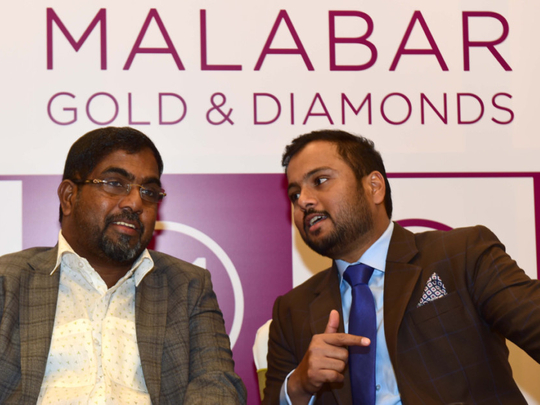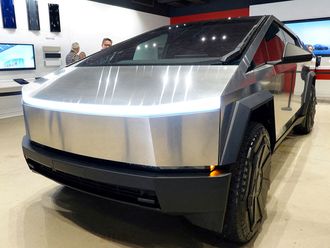
DUBAI
Malabar Gold & Diamonds plans to roll out a network of smaller format stores with collections targeted at Gulf Arabs. These stores will mostly operate from malls and even have their own branding — “MGD”. The merchandise mix will essentially be 18k gold and diamond jewellery, with average ticket prizes of Dh3,000-Dh5,000.
“The Gulf Arab buyer is segment that the big 22k jewellery retailers have not been able to break into,” said Shamlal Ahmad, Director of International operations. “Their preferences are different and that’s why they need to be targeted using a different format from our traditional stores.”
The jewellery retailer has had a trial run in recent months for the MGD, and operates seven of these in the UAE, including one at the Gold Souq. These are typically about 250-300 square feet compared with the 1,500-2,000 square feet outlets in Malabar’s network.
“We need to get into a new buyer category — there is limited year-on-year growth possibility in the 22k category typically favoured by expat buyers here,” Ahmad said. “It’s not about the value-added tax [VAT], but a trend we have seen with growth rates in recent years.”
But that is not stopping the Group from opening 11 outlets across its network on Friday (January 12), including five in the UAE. These will take the network’s strength to more than 200 locations, of which 90 are in India. (Currently, the Gulf operations represent 40 per cent of Group turnover. In 2017, the Group expects to have done Rs250 billion, helped by a 16 per cent year-on-year gain in India, while the Gulf turned in a slower round of growth.)
As for the VAT factor, Malabar has seen a 50 per cent drop in demand at its UAE stores in the first 10 days of the year. It is a drop-off that other retailers have been experiencing as well. According to Ahmad, this is in line with what the trade had been anticipating and compensated by the pre-VAT buying that took place in December, and particularly in the last six days of the year.
But Malabar still plans to add four showrooms in the UAE this year. The network expansion in Saudi Arabia will be much more difficult, after the government directive that all jewellery stores in the kingdom can only have Saudi nationals as sales staff. The change was effected in the fourth quarter and even forced a one-week shut down of jewellery stores there.
“Currently, the Gulf markets contribute 40 per cent to the Group turnover and we should still see some gains in the future, especially if the MGD concept stores prove a hit,” Ahmad said. “Though domestic shoppers are absent in high numbers, tourist buying of gold and jewellery has been improving since November. The Indians coming in are buying, and there is also a growing presence of Chinese buying support for jewellery here. In fact, they have been snapping up some big-ticket diamond jewellery at the Gold Souq and more than compensated for the absence of Russians.
“But all retailers will have to be extra careful with how they manage jewellery stocks in the coming weeks, or at least until such time demand makes a return.”
A potential welcome break on store rentals
The roll-out of VAT could even have a silver lining for UAE’s jewellery retailers, at least some of them. “There is less demand for new stores from the trade, and that could put pressure on rentals in Tier 2 locations including malls,” said Shamlal Ahmad, Director of International operations at Malabar Gold & Diamonds. “There have been a few locations offered to us in recent days at a steep discount to earlier rates. The jewellery trade would welcome such a break.”
The Malabar Group has been expanding its interests in real estate, in its home market in Kerala, the southern Indian state. But these are tough times for the industry there, says Chairman M.P. Ahmad. “Remittances from Gulf-based buyers are down significantly and that’s been a blow for the property market in the state. We have been noticing the decline in investments coming into the sector through 2017.”
— M. N.












